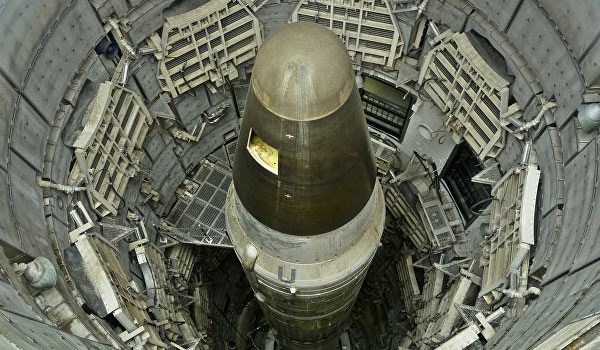
RNA - Now in a decisive 122-1 vote at the United Nations, a global ban on nuclear weapons has just been approved, a massively important step toward disarmament made somewhat less impactful by all the current nuclear-armed states boycotting the meetings.
This doesn’t mean there weren’t major powers signing the deal. Brazil was a noteworthy signatory, and both Iran, Egypt and Saudi Arabia signed on the dotted line, which appears to dramatically reduce the risk of a nuclear arms race in the Middle East. The sole dissenting vote was also the sole NATO member to even attend the meetings, the Netherlands. They have hosted US nuclear arms in the past, and appeared loathe to sign on to a deal that would effectively oblige them to stop such hosting deals.
Generally speaking, close US allies complied with US wishes and boycotted the conference, meaning states like South Korea didn’t attend, despite having much to lose in a potential nuclear war. Another conspicuous absentee was Japan, which likely reflects its desire to keep cozy relations with the US, but is likely to be hugely controversial within Japan, the only nation to be a victim of US nuclear attacks in a war.
While the lack of nuclear states signing is disappointing, it doesn’t necessarily make the deal worthless, as a similar ban on landmines was spurned by US and other landmine using states, but still led to significant, albeit gradual, policy changes which have brought many of those nations into de facto compliance with the treaty.
By any account, history was just made, and nuclear-armed states, a small group of global outliers, stand on the wrong side of it:
- The treaty marks a historic turning point in the battle to eliminate all weapons of mass destruction. It’s the first multilateral nuclear disarmament treaty to be concluded in more than 20 years. The landmark moment comes 72 years after the US atomic-bombing of Hiroshima and Nagasaki. The international community's firm determination not to repeat these tragedies is indeed the linchpin of the convention.
- One hundred and twenty-two nations agreed to the final draft text after weeks of negotiations that were not attended by any of the nine nuclear-armed regimes, which include the US, France, UK, and Israel. The outlaw states’ boycott of the ban treaty illustrates a denial of common sense and the terrible impacts of these weapons on human lives.
- The treaty is based on International Humanitarian Law and prohibits the development, testing, production, possession, or stockpiling of nuclear weapons or other nuclear explosive devices, the transfer of such weapons, and also bans not only their use but the threat of their use. It calls for states to undertake environmental remediation for areas contaminated by nuclear weapons use or testing, and for states to provide assistance to victims including medical care, rehabilitation, and psychological support, as well as provide for their social and economic inclusion.
- The treaty refutes the claim made by a handful of states that they need nuclear weapons to ensure their own security, and that humanitarian consequences must somehow be balanced with those needs. Not only does the treaty insist that the dangers posed by nuclear weapons "concern the security of all humanity," but it also calls the long-overdue elimination of nuclear weapons "a global public good of the highest order, serving both national and collective security interests.”
The world is on the cusp of a truly historic moment. It has declared, unambiguously, for the first time, that nuclear weapons are not only immoral, but also illegal. There should be no doubt that the draft before the world community establishes a clear, categorical ban on the worst weapons of mass destruction.
The outlaw states, chiefly the United States, have ignored reality and not signing the nuclear weapons ban treaty will go down as one of their worst foreign policy blunders in human history. It will also isolate the US further after Trump’s shocking decision to withdraw from the Paris climate agreement.
It’s indeed a disappointing and embarrassing day for the United States, which claims to be at the forefront of International Law and International Humanitarian Law. This decision makes zero sense from a global security perspective and the rest of the world will question whether the US can be trusted with all those nuclear warheads and weapons of mass destruction.
Future generations will look back on the US and other outlaw states’ decision as one of the worst policy moves made in the 21st century. The world seriously hopes they reconsider this awful decision, this dramatic mistake, this assault and battery on the future of humanity. Not signing the treaty is a reckless and indefensible action. It undermines the outlaw states’ standing in the world and threatens to damage humanity’s ability to solve the threat of nuclear weapons in time.
But make no mistake: If the United States won’t lead, the international civil society will. There can be no excuse for this willful crime, and the rest of world must resolve to continue the fight for a world free from weapons of mass destruction.
847/940